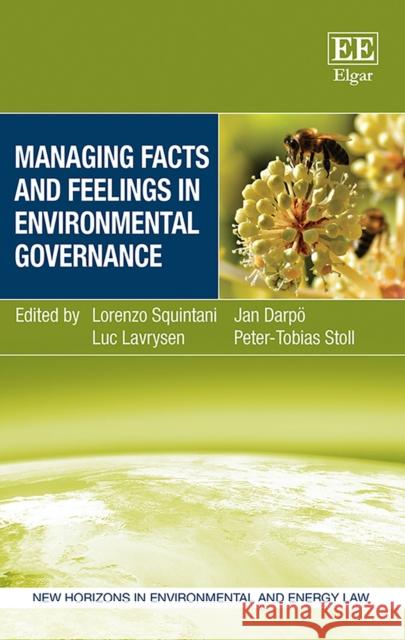Managing Facts and Feelings in Environmental Governance » książka
Managing Facts and Feelings in Environmental Governance
ISBN-13: 9781788976169 / Angielski / Twarda / 2019 / 256 str.
Facts and feelings constitute a complex tension in modern science. Not only can public opinion deviate from scientific knowledge, but that knowledge itself can be lacunose or contradicting. Managing Facts and Feelings in Environmental Governance examines this internal friction, between the need to engage the public in the importance of environmental governance and the demand of professional expertise to address the issues that arise. This timely and insightful book acknowledges the growing role of behavioural science in the determination of environmental policy, regulation and decision-making, providing astute guidance to decision-makers regarding how to balance the needs of public participation procedures and professional expertise. Its multidisciplinary approach provides new insights in the field of public participation, enabling further analysis of environmental psychology, equality law and fundamental rights, and offers concrete guidance on how to approach natural science in court. Engaging with the role that the precautionary principle can play in balancing tensions between public and academic spheres, this book includes a state-of-the-art account of the precautionary approach under EU and international law. Combining law in action with academic approaches, this book is a must-read for scholars of environmental law, governance and regulation. It also offers valuable guidance for decision-makers and NGOs active in environmental protection, as well as environmental lawyers at national, European and international levels.











